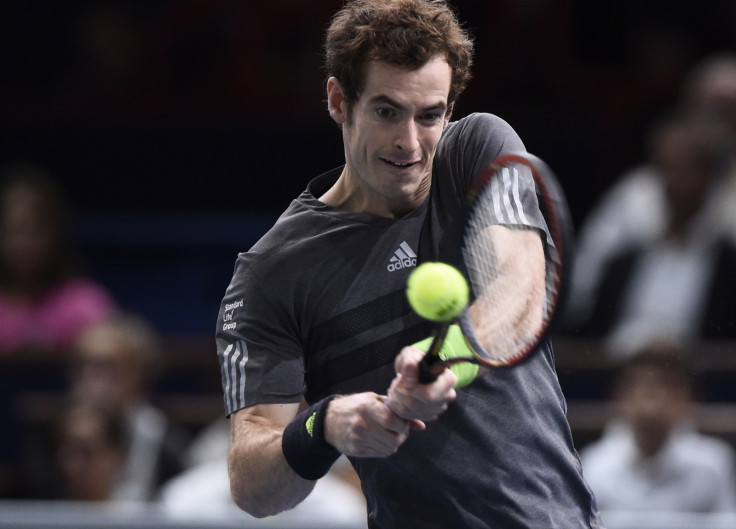Will Andy Murray be Booed at ATP Finals Over Scottish Independence Yes Vote?
Murray returns to Britain for the first time since backing the 'Yes' vote

Trailing in a first set tiebreak against Roger Federer, Andy Murray changes racket for a crucial series of points. Returning to the service line he is met by a succession of boos and whistles and subsequently buckles under the scrutiny, losing the tiebreak and then the match in straight sets.
The incident did not take place in Federer's home city of Basel, or at any of the various ATP venues across the globe, but in Murray's adopted home of London – the hotbed of tennis in the UK – during the 2012 ATP World Tour semifinals.
Even as the tearful beaten Wimbledon finalist, Olympic singles and US Open champion, Murray could not escape a baying home crowd and the broad appeal of the 17-time Grand Slam champion. Even after everything Murray had been through, he still polarised opinion among his own crowd.
On Sunday, Murray returns to the O2 Arena for the first time since that defeat to Federer, when he was preyed upon by a 19,000 strong crowd, to face Kei Nishikori, whose own fan base will be in full voice upon the start of the Japanese player's first ATP Tour Finals campaign.
However, despite being the 2013 Wimbledon champion, Murray returns to the English capital uncertain of the reception he will receive in his first match on British soil, since declaring support on Twitter for the 'Yes' vote in September's Scottish Independence referendum.
Although an expression of a sportsperson's political viewpoint it not normally newsworthy, the response to Murray's stance on the day the polls opened in Scotland sparked waves of criticism on social media where the 28-year-old was subjected to a death threat, relating to the Dunblane massacre of 1996, when a guman killed 16 children and a teacher in a school.
Murray's miserable demeanour and criticism of England's football team, which had previously counted against him in the eyes of the British public, appeared forgotten as he achieved a record margin of victory when winning the BBC Sports Personality of the Year award in December 2013.
But in taking a political view which was at odds with the country in which he lives and where his sport's governing body, the Lawn Tennis Association is based, Murray transformed from British sporting hero to aggressive Scottish nationalist in the space of 140 characters.
The question is will the backlash from Twitter's keyboard warriors translate into a hostile reception for Murray upon his return to London? Having stood by his comments in the aftermath of the online abuse, the two-time major champion has no hiding place.
The profile of the British tennis fan, decked in Union Jack bunting, inhaling strawberries and cream and clapping politely between points is a far cry from the typical supporter attending a session during the week of the ATP Finals.
The chance to watch the world's top eight tennis players brings with it the casual, almost fair-weather sports fan, while being a stone's throw from Canary Wharf attracts banking and corporate fat cats.
The result is an eclectic, yet lager partial crowd, there to be entertained and enthralled and unwilling to conform to the etiquette of tennis spectatorship. With the season-ending finals in its sixth year in Greenwich, Murray knows better than most the atmosphere which surrounds the event.
The episode during his defeat to Federer two years ago, his already dubious profile in the eyes of the British public, and the makeup of the modern tennis crowd, could create a cocktail for resentment and even anger towards Murray.
With sports fans traditionally having the shortest and most selective of memories, two days prior to Remembrance Day they look set to unleash on one of Britain's finest sporting soldiers. A dark prospect.
© Copyright IBTimes 2025. All rights reserved.






















